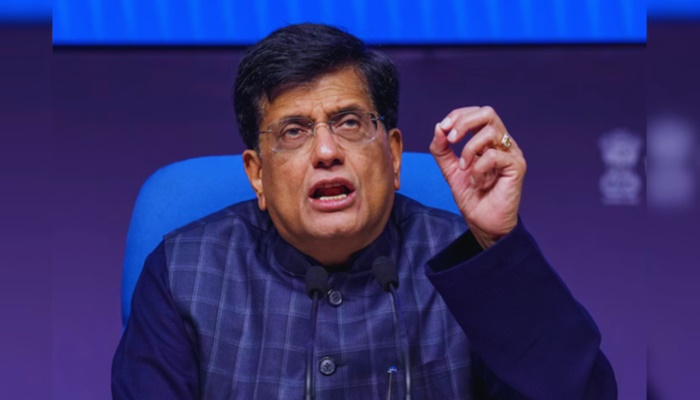Signing bonuses, stock options, hefty commissions and even the doubling of salaries — that’s what seasoned private bankers, and in some cases less experienced ones, are demanding in India as the fight for talent intensifies.
A surge in the newly wealthy population and the fragmentation of advisers into dozens of competing outfits have turbocharged demand, pushing compensation to record highs.
Experienced relationship managers are landing salary hikes of as much as 40%, while newer wealth management firms are offering bankers 50% or more of the revenue they generate, said Prateek Gupta, associate director, talent solutions for India, at consultancy Aon.
Banks typically provide higher fixed salaries but lower revenue shares, whereas independent firms offer potentially more lucrative packages, unbound by rigid board policies and shareholder constraints.
One of the upstart firms is broking giant Angel One Ltd.’s Ionic Wealth, which manages around 38 billion rupees ($442 million). It hired 70 client-facing bankers in the last 14 months and plans to hire another 35 this year, adding to its existing team of 185. Stock options are part of its pitch to new hires.
“We were able to recruit six to twelve months ahead of the mad scramble we see today,” said Srikanth Subramanian, chief executive officer of Ionic Wealth. “I see compensation continuing to expand for at least the next two years before reality sets in and business models evolve and settle down.”
The race to hire comes as India becomes a global hotspot for wealth management, with the nation now trailing only the US, China and Japan in terms of the number of individuals worth at least $10 million, according to Knight Frank. A surge in stock markets and real estate transactions along with burgeoning demand from the newly rich for tailored investment advice, is driving the boom.
New firms, led by private bankers, brokers and shadow lenders are rushing in to capitalize. But the frenzy is also raising red flags, with some warning of bull-market driven compensation and shaky business models.
While pay for private bankers in India has been rising for years, a wave of private equity investment into the sector is boosting rewards as founders and their backers seek to poach clients. Besides stock options, firms are offering joining bonuses — sometimes called a golden hello — performance guarantees, sizable revenue sharing deals and other sweeteners to tap experienced hires, according to seven industry executives who spoke to Bloomberg News.
Experienced relationship managers with at least 8 to 10 years of experience and managing $50 million or more in client assets, can earn more than $90,000, according to three executives, who asked not to be identified discussing private remuneration matters. While compensation in more developed markets like Hong Kong and Singapore is often higher, the rate in India is up about 60% versus two years ago.
Some senior bankers are now seeking packages of more than $150,000 in India even before a joining bonus and stock options, nearly doubling from a year earlier, the executives said.
“There is a growing emphasis on performance-based pay and data-driven incentive structures that reward not just revenue but also client retention, portfolio quality and advisory effectiveness,” said Gupta.
The hiring is taking place across the board. PAG-backed Nuvama Wealth has added more than a hundred bankers to its high-net- worth individual and affluent client division over the last year, while the ultra-high-net-worth team grew by 10-15% from more than 120 last year, said Ashish Kehair, CEO of Nuvama Group.
“Many firms are aggressively trying to hire people, hoping clients will follow, helping them gain market share early,” he said.
Upstart Models
Underscoring the growing clout of local players, UBS Group AG, the world’s largest wealth manager, struck a deal in April to sell its Indian operations to 360 One WAM Ltd., which manages $68 billion and is led by veteran banker Karan Bhagat.
The mix of other fast-growing firms includes Neo Wealth and Asset Management, founded by senior private bankers and funded by MUFG Bank, Dezerv Investments Pvt Ltd., backed by tech tycoon Azim Premji’s family office, and the private wealth units of Spark Capital Advisors India Pvt Ltd and Shriram Capital Ltd.
Executives from private banking units of India’s top lenders are moving to independent firms, attracted by higher pay and flexibility, while less experienced relationship managers at commercial banks are being poached by the larger wealth managers to bolster their regional offices.
“Many banks are no longer prioritizing wealth management. As a result, clients are increasingly moving to firms with specialized capabilities,” said Abha Bagroy, chief executive officer of Gen-Y Consulting, a specialist headhunting firm for private banking.
Rising Costs
The talent war has led to irrational demands and over-optimism about the future. For instance, some wealth managers routinely claim they can bring over at least 30-50% of clients’ assets, much higher than the industry norm. Discussions in job interviews among the more hopeful group center around guarantees on commissions, big stock options and joining bonuses equivalent to annual salaries, executives said.
In addition, the unprecedented rewards have pushed up staff costs of wealth managers, triggering some concerns about the impact of sustained cost pressures on the industry’s growth.
Still, while annual compensation for director-level relationship managers has risen 14% over the last year, according to Bloomberg Intelligence senior analyst Sarah Jane Mahmud, packages for junior executives have reduced by 2%. This is due to the hiring mainly taking place in second-and third-tier cities where staff costs are lower, and as new recruits are increasingly coming from retail commercial banks.
Ionic’s Subramanian said that while he doesn’t mind paying significantly more for suitable candidates, companies throwing money just to build a team are not sustainable because the returns in wealth management take time to deliver.
“This is a bull market trap. New players are willing to pay huge compensation packages with bonuses and stock options assuming they will see the same growth as the past three years,” said Rajesh Saluja, chief executive officer at ASK Private Wealth, part of Blackstone-backed ASK Group. “Growth is going to be tougher here on out.”




















